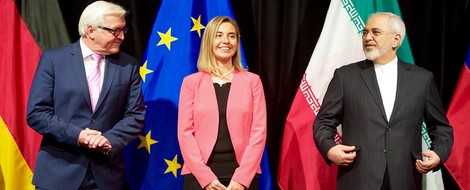Your podcast discovery platform
Curious minds select the most fascinating podcasts from around the world. Discover hand-piqd audio recommendations on your favorite topics.

piqer for: Climate and Environment Globalization and politics Health and Sanity
Mona Silavi is a human and women’s rights activist from the Ahwaz region in Iran. She obtained her bachelor in psychology and specialized in children and adolescence psychology at Damascus University, faculty of psychology and education. She holds a master degree in good governance and human rights in MENA region from Ca’ Foscari University in Venice. She started her activism in Damascus as member of Ahwazi Arab student association. Mona Silavi is a Project Officer at the Unrepresented Nations and Peoples Organization (UNPO) and is the coordinator for topics concerning freedom of religion and belief. She is also a spokesperson of the Al-Ahwaz Democratic Solidarity Party (DSPA). Since 2014 Ms Silavi lives in Belgium as a political refugee
How Is The EU Sacrificing Its Principles To Keep Iran In The Nuclear Deal?
In this article, the author sheds light on the Annual report on human rights and democracy in the world and the European Union’s policy on the matter for 2017.
In this report, we see the smallest countries in the Middle East, such as Bahrain and Kuwait, but somehow the biggest countries in the region, such as Turkey or Iran, are totally dismissed.
It seems the EU’s priority of keeping the nuclear deal forced it to turn a blind eye to Iran's multiple human rights violations, including executions and enforced disappearances.
The author uses Syria and Iraq as an example of the EU's failure to intervene in numerous Middle Eastern human rights crises. And how the EU actually played a negative role in authoritarian regimes such as Syria by their so-called “soft power” and “open-trade” policies.
However, a quick glimpse at the history of Europe in dealing with the Syrian regime based on open-market policies confirms that the EU’s approach not only failed to help the Syrian people but also led to the establishment of what is known in Syria as “parasite bourgeoisie”: individuals who earned their capital not under a fair and equal competition, but through direct and shady connections with the system, being totally dependent on the government.
If the EU continues to have economic relations with Iran under the pretext of "soft power", only those who are connected to the Iranian government will benefit and not the majority of Iranian people. We may witness the growth of the middle class or businessmen in Iran but, as with Syria, they will be one of the biggest obstacles for change and democracy because they gain their status and capital by relations with authoritarian regime and any change will threaten their situation.
Finally, according to the author, the EU is sacrificing its principles to show that it is independent from the United States and in order to have short-term benefits in the Middle East. These inactions have led to a loss of reputation in the region.
